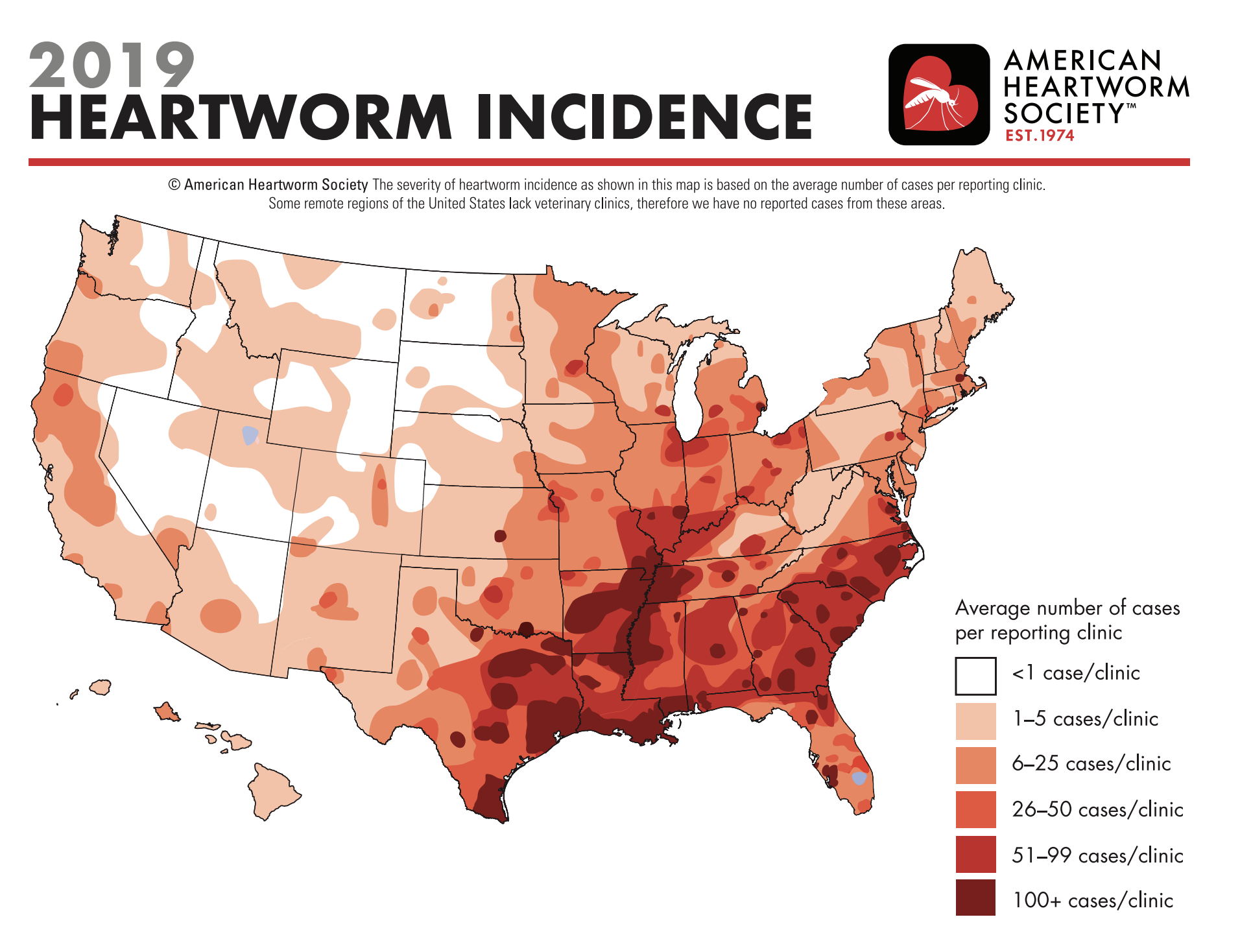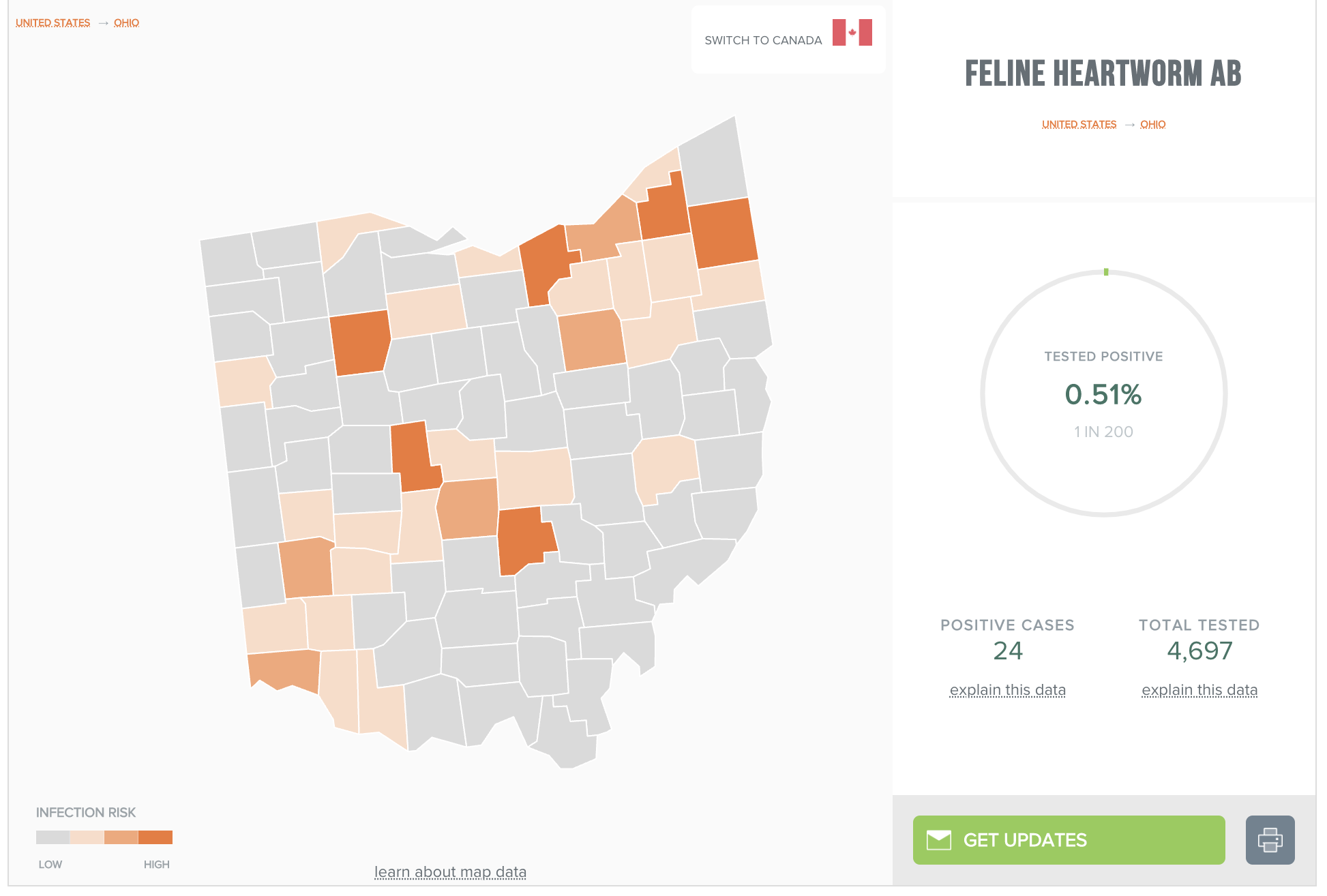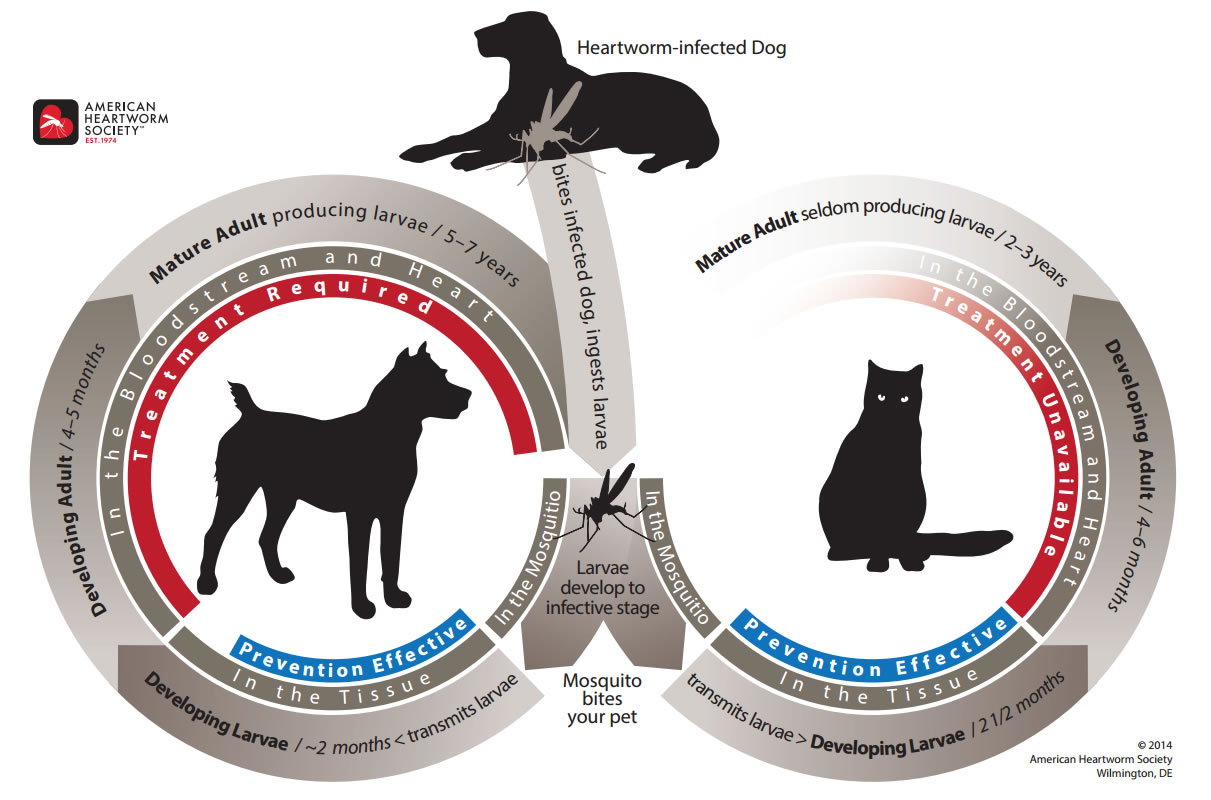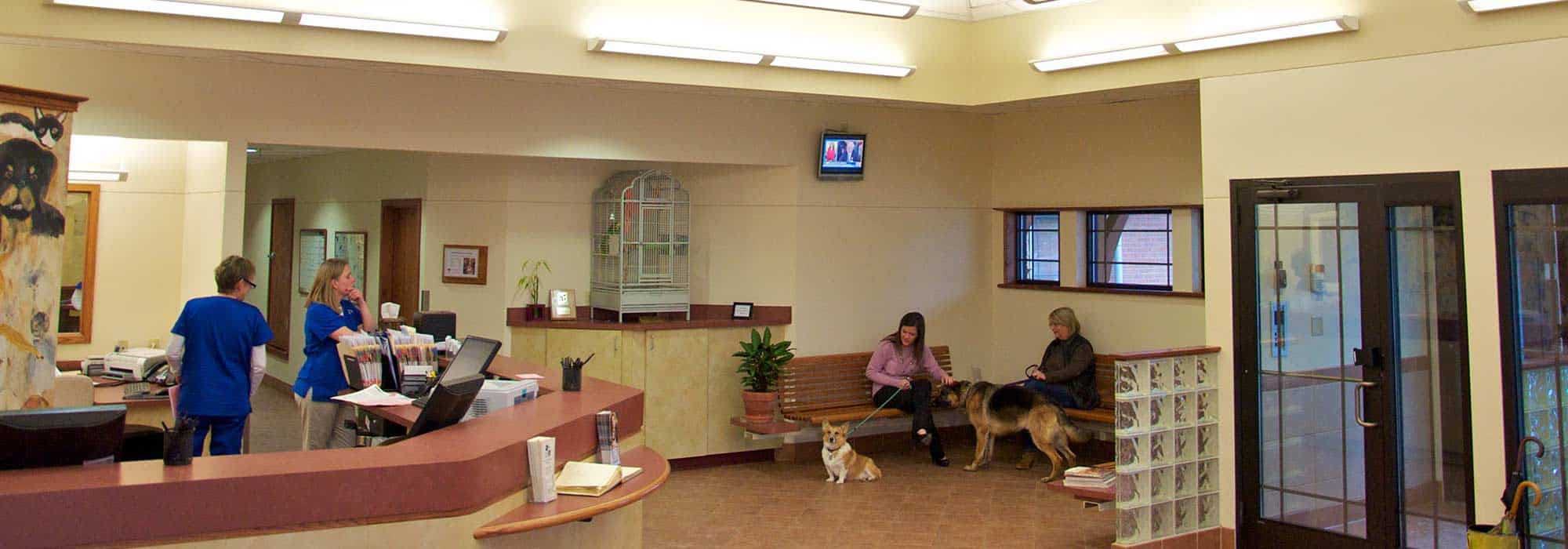National Heartworm Awareness Month

The Heartbreaking Disease that is Perfectly Preventable
Based on the latest data from the American Heartworm Society, southeastern Ohio has a sadly-high incidence rate of heartworm disease. In 2019, there were a reported 51-99 cases per veterinary clinic in the Cincinnati area.

Heartworm Disease Affects Both Dogs and Cats
In 2022, the Companion Animal Parasite Council reports the following number of pets tested positive for heartworm disease:
- Dogs: 3,043
- Cats: 24
It may seem that cats are relatively safe from heartworm disease. However, Hamilton County was one of the highest-risk areas in Ohio for cats. Also, we only have data on pets who were tested for heartworm. Any undiagnosed cases are not included.

The American Heartworm Society adds:
“Heartworm infection in cats is harder to detect than in dogs, because cats are much less likely than dogs to have adult heartworms. The preferred method for screening cats includes the use of both an antigen and an antibody test (the “antibody” test detects exposure to heartworm larvae). Your veterinarian may also use x-rays or ultrasound to look for heartworm infection. Cats should be tested before being put on prevention and re-tested as the veterinarian deems appropriate to document continued exposure and risk. Because there is no approved treatment for heartworm infection in cats, prevention is critical.”
Heartworm Disease Happens Year-Round
Already in 2023, Ohio has reported 484 positive cases in dogs and 9 positive cases in cats. That’s why we recommend heartworm and flea prevention for dogs and cats year-round. With Ohio’s unpredictable weather, mosquitoes and fleas can emerge at unlikely times.
Heartworm Disease Basics
During Heartworm Awareness Month, it’s good to review the basics.
- Heartworms are foot-long parasitic worms that live in the host animal’s heart, lungs and blood vessels. They cause severe, and often irreversible, damage. Pets affected include dogs, cats and ferrets.
- Heartworm larvae spread through mosquito bites. When a mosquito bites an infected mammal (including wildlife, such as coyotes), it can spread the parasite to the next animals it bites.
- Treatment for heartworm disease in dogs is expensive and risky. There is no treatment for cats.
- Heartworm prevention is easy and inexpensive. Veterinarians prescribe the right preventative medication for your cat or dog. There are many brands, but almost all of them are a monthly tablet or chewable.
One Infected Dog Can Infect Many Others with Heartworm Disease
Dogs and wildlife are most likely to keep heartworm infection risk high in a given area. Heartworms infect cats bur rarely reach mature adult stage.
This heartworm lifecycle chart shows that an untreated, infected dog can spread heartworms through mosquitoes for the remainder of their life.

It can also take up to eight months for an infected pet to test positive for heartworm.
Dogs who aren’t protected by heartworm preventative will almost certainly become infected if bitten by an infected mosquito. For cats, infection rate is between 61-90%.
Let’s protect our pets from heartworm disease and save so much heartache from the pain and suffering this parasite causes. Contact us if your Cincinnati-area pet needs wellness and prevention care.

